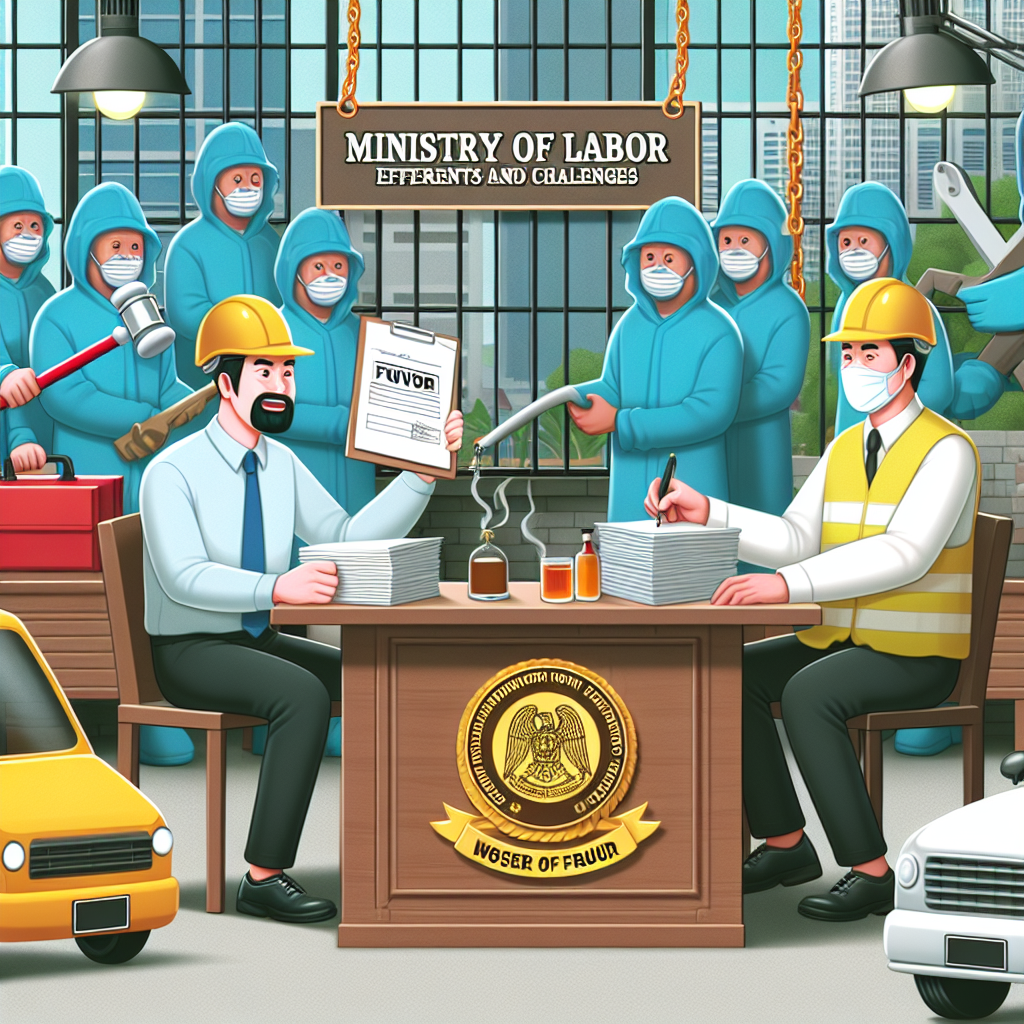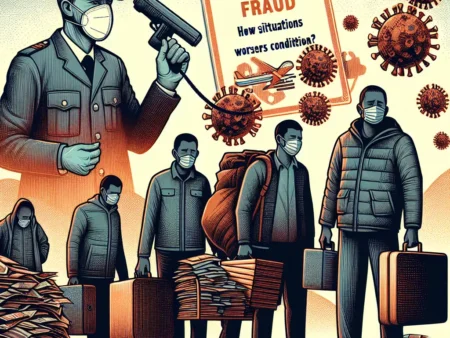Deskripsi meta: Upaya dan tantangan Kementerian Tenaga Kerja dalam mengatasi penipuan terkait Tenaga Kerja Indonesia (TKI).
Kementerian Tenaga Kerja dan Penipuan TKI: Upaya dan Tantangan
-
Table of Contents
- Kementerian Tenaga Kerja dan Penipuan TKI: Upaya dan Tantangan
- Introduction
- The Role of Kementerian Tenaga Kerja
- 1. Pre-departure Training and Education
- 2. Regulation and Monitoring of Recruitment Agencies
- 3. Collaboration with Destination Countries
- Challenges Faced by Kementerian Tenaga Kerja
- 1. Limited Resources
- 2. Coordination with Other Ministries
- 3. Changing Dynamics of Migration
- Conclusion
Kementerian Tenaga Kerja dan Penipuan TKI: Upaya dan Tantangan

Introduction
Indonesia is known for its large number of migrant workers, with millions of Indonesians seeking employment opportunities abroad. However, this has also led to an increase in cases of fraud and exploitation of Indonesian migrant workers, commonly known as Tenaga Kerja Indonesia (TKI). The Ministry of Manpower, or Kementerian Tenaga Kerja (Kemnaker), plays a crucial role in addressing these issues and ensuring the welfare and protection of TKIs. This article will explore the efforts and challenges faced by the Ministry in combating fraud and protecting the rights of Indonesian migrant workers.
The Role of Kementerian Tenaga Kerja
Kementerian Tenaga Kerja is responsible for formulating and implementing policies related to labor and employment in Indonesia. Its primary objective is to create a conducive environment for workers, both domestically and internationally. When it comes to TKIs, the Ministry focuses on several key areas:
1. Pre-departure Training and Education
One of the main challenges faced by TKIs is the lack of information and knowledge about their rights and responsibilities as migrant workers. To address this, the Ministry has established pre-departure training programs to educate TKIs about their rights, employment contracts, and the potential risks they may face abroad. These programs aim to empower TKIs with the necessary knowledge to make informed decisions and protect themselves from exploitation.
2. Regulation and Monitoring of Recruitment Agencies
Recruitment agencies play a crucial role in facilitating the migration process for TKIs. However, there have been numerous cases of fraudulent agencies that deceive and exploit workers. The Ministry has implemented strict regulations and licensing requirements for recruitment agencies to ensure their credibility and accountability. Regular monitoring and inspections are conducted to identify and penalize agencies involved in fraudulent activities.
3. Collaboration with Destination Countries
The Ministry recognizes the importance of collaboration with destination countries to protect the rights of TKIs. Bilateral agreements and Memoranda of Understanding (MoUs) are established to ensure the welfare and protection of Indonesian workers abroad. These agreements cover various aspects, including working conditions, wages, legal protection, and access to healthcare. Regular dialogues and consultations are held to address any issues or challenges faced by TKIs in destination countries.
Challenges Faced by Kementerian Tenaga Kerja
While the Ministry of Manpower has made significant efforts to combat fraud and protect TKIs, several challenges persist:
1. Limited Resources
The Ministry faces resource constraints in terms of manpower and funding. The scale of the issue requires a substantial allocation of resources to effectively address the challenges faced by TKIs. However, limited budgets and competing priorities often hinder the Ministry’s ability to implement comprehensive programs and initiatives.
2. Coordination with Other Ministries
Protecting the rights of TKIs involves collaboration with various ministries, including the Ministry of Foreign Affairs and the Ministry of Law and Human Rights. Ensuring effective coordination and cooperation among these ministries can be challenging, as each ministry has its own priorities and mandates. Streamlining efforts and establishing clear communication channels are essential to overcome these challenges.
3. Changing Dynamics of Migration
The dynamics of migration are constantly evolving, with new destinations and trends emerging. This poses a challenge for the Ministry in terms of adapting its policies and strategies to address the changing needs and risks faced by TKIs. Continuous monitoring and research are necessary to stay updated and respond effectively to emerging challenges.
Conclusion
The Ministry of Manpower plays a crucial role in protecting the rights and welfare of Indonesian migrant workers. Through pre-departure training, regulation of recruitment agencies, and collaboration with destination countries, the Ministry strives to combat fraud and exploitation of TKIs. However, challenges such as limited resources, coordination with other ministries, and changing dynamics of migration persist. Overcoming these challenges requires a concerted effort from all stakeholders involved, including the government, civil society organizations, and international partners. By addressing these challenges, the Ministry can continue to improve the conditions and protection of Indonesian migrant workers, ensuring their well-being and contributing to the overall development of the country.







